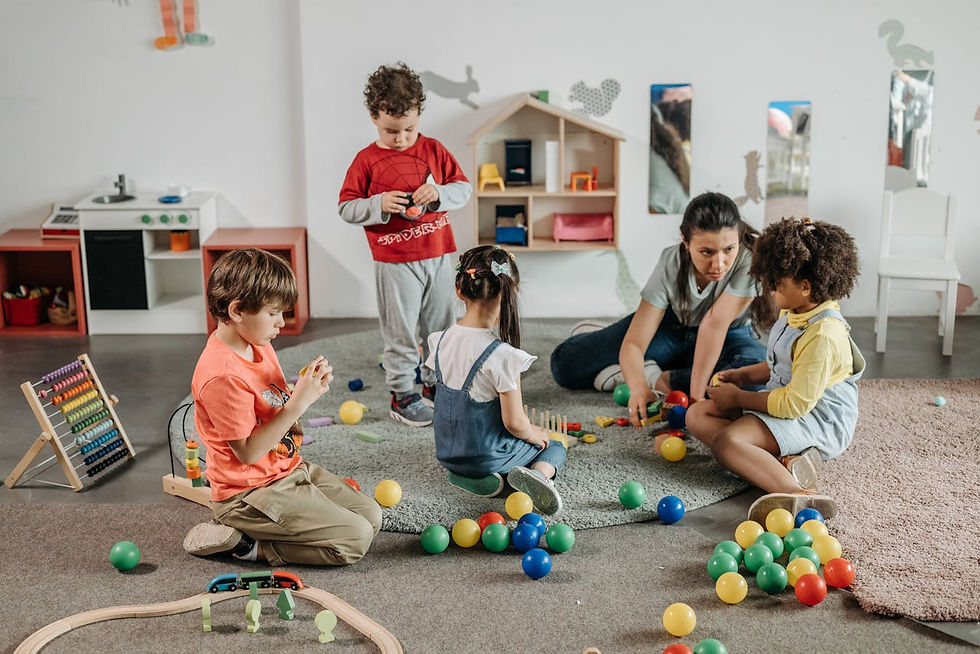THE ROLE OF PLAY IN EARLY CHILDHOOD DEVELOPMENT: LEARNING THROUGH FUN
- DE MODE

- Feb 15, 2025
- 2 min read
ORIGINALLY PUBLISHED IN DE MODE | FAMILY & PARENTING
Article Published on: 15TH FEB 2025 | www.demodemagazine.com
Play is an essential part of early childhood development, serving as a foundation for cognitive, social, emotional, and physical growth. Through play, children explore their world, develop critical skills, and build confidence—all while having fun.

Cognitive Development
Play stimulates brain development by encouraging curiosity, problem-solving, and creativity. Activities like puzzles, building blocks, and pretend play help children develop critical thinking, spatial awareness, and decision-making skills. Through imaginative play, such as pretending to be a doctor or a chef, children enhance their ability to think abstractly and make connections between ideas.
Social and Emotional Growth
Interacting with peers during play teaches children important social skills, such as cooperation, communication, and conflict resolution. Group play fosters teamwork, negotiation, and empathy as children learn to take turns and understand others' perspectives. Additionally, play allows children to express and process emotions, helping them develop resilience and emotional regulation.
Physical Development
Active play, such as running, jumping, and climbing, supports motor skills and overall physical health. Fine motor skills are refined through activities like drawing, cutting, and playing with small objects. Engaging in movement-based play also helps children improve coordination, balance, and muscle strength, which are crucial for their growth and independence.
Language and Communication Skills
Play provides natural opportunities for language development. Whether through storytelling, singing, or role-playing, children expand their vocabulary and learn to express themselves effectively. Conversations during play also enhance listening skills and comprehension, setting the stage for future literacy.
Encouraging Playful Learning
Parents and educators can encourage learning through play by providing diverse materials, such as art supplies, musical instruments, and building toys. Unstructured playtime allows children to explore their interests freely, while guided activities can introduce new concepts in an engaging way.
Play is not just entertainment—it is a powerful learning tool that shapes a child's development. By fostering play, we nurture confident, creative, and well-rounded individuals, ensuring a strong foundation for lifelong learning.



Comments